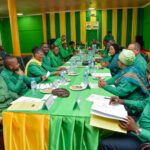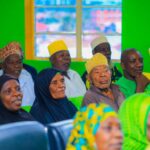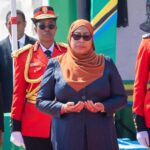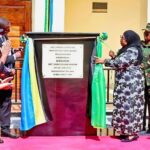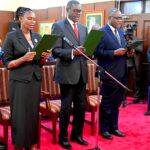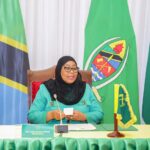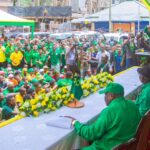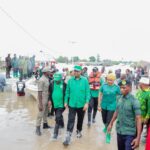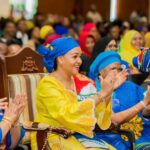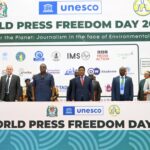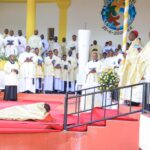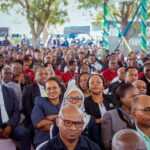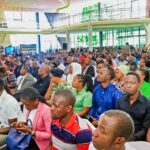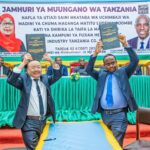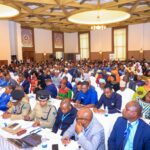A significant event has recently taken place in Tanzania’s political landscape. Judge Francis Mutungi, Registrar of Political Parties, presided over a crucial Consultation Session organised by the Tanzania Center for Democracy (TCD). The session was a pivotal gathering aimed at fostering dialogue and collaboration among the country’s political entities. It brought together a diverse array of political party representatives, government officials, and key stakeholders, all united in their commitment to advancing democratic principles in Tanzania.
Setting the Stage for Dialogue
The Consultation Session was not a mere routine meeting; it was a strategic platform designed to enhance mutual understanding and cooperation among Tanzania’s political parties. The attendance of Judge Francis Mutungi highlighted the significance of the session, as he played a pivotal role in steering the discussions and guaranteeing that they remained aligned with the core objectives of promoting democracy and political stability.
Key Attendees and Their Roles
The session was attended by a number of high-profile political figures, each of whom contributed their own unique perspectives and experiences to the proceedings. Ambassador Dr. Emmanuel Nchimbi, Secretary General of the Chama Cha Mapinduzi (CCM) party, was also in attendance. His participation demonstrated the ruling party’s commitment to constructive engagement with other political entities.
Mr. Freeman Mbowe, Chairman of the Chadema Party and current Chairman of the TCD, also made a notable contribution to the proceedings. His role within the TCD was instrumental in fostering dialogue between the various political parties, facilitating open and honest discussions aimed at addressing the challenges facing Tanzania’s democratic processes.
Another key figure at the session was Professor Ibrahim Haruna Lipumba, whose insights and expertise provided valuable depth to the discussions. Professor Lipumba’s contributions were instrumental in shaping the outcomes of the session, given his respected academic and political credentials.
Government Representation and Involvement
In addition to the leaders of the political parties, the session was attended by ministers and deputy ministers representing the Tanzanian government. Their attendance demonstrated the government’s commitment to engaging with political parties in a collaborative manner. This involvement was pivotal in guaranteeing that the discussions were not only theoretical but also actionable, with a transparent plan for the implementation of agreed-upon strategies.
Objectives and Outcomes of the Session
The primary objective of the consultation session was to establish a constructive environment for dialogue among political parties, with the overarching goal of enhancing democratic governance in Tanzania. The session aimed to address key issues such as electoral reforms, political party financing, and the role of political parties in promoting national unity.
One of the key outcomes of the session was the establishment of a framework for ongoing dialogue among political parties. The framework is designed to facilitate regular interactions and consultations, ensuring that political parties remain engaged in the democratic process and are able to contribute effectively to national development.
Challenges and Opportunities
While the session was a positive step forward, it also revealed a number of challenges that must be addressed to guarantee the success of future dialogues. One of the primary challenges is the need to ensure greater inclusivity, guaranteeing that all political parties, irrespective of size or influence, have a voice in the discussions. Inclusivity is a crucial element in fostering a truly democratic environment where diverse perspectives are valued and considered.
Furthermore, the session highlighted the necessity of fostering trust among political parties. It is essential to recognise that trust is a critical component of any successful dialogue. Therefore, efforts must be made to bridge the gaps and address any lingering mistrust that may exist between parties.
Looking Ahead: The Future of Political Dialogue in Tanzania
The Consultation Session of Political Parties Members of the Tanzania Center for Democracy represents a pivotal moment in the country’s ongoing journey towards democratic consolidation. It serves as a reminder of the value of constructive dialogue and collaboration in addressing political challenges and building a more inclusive and democratic society.
As Tanzania continues to navigate its political landscape, the insights gained from this session will prove invaluable in shaping future interactions among political parties. By fostering an open dialogue and a culture of mutual respect, Tanzania can continue to strengthen its democratic institutions and ensure that the voices of all its citizens are heard and respected.
In conclusion, the Consultation Session, presided over by Judge Francis Mutungi, demonstrated the commitment of Tanzania’s political leaders to work together in a spirit of democratic collaboration. It provided a forum for constructive dialogue and established the foundation for continued collaboration among political parties, government officials, and other stakeholders. As the country progresses, the insights and agreements reached during this session will be instrumental in shaping the future of Tanzania’s democracy.
Tanzania Media
- Kanyala Ferry Launch: TEMESA’s New Service for 15,000 Sengerema Residents (Mwanza) - 18 August 2025
- Russia-Tanzania Naval Cooperation: How the Smolny Training Ship Boosts Dar es Salaam’s Maritime Security - 18 August 2025
- Tanzania’s ICGLR Commitment: Stabilising the DRC & Great Lakes Region - 18 August 2025









